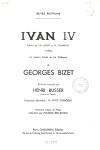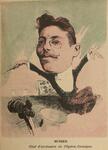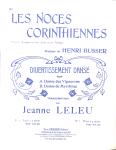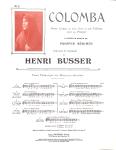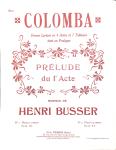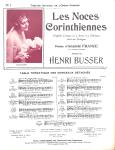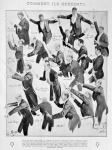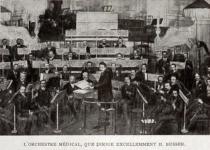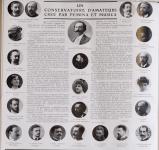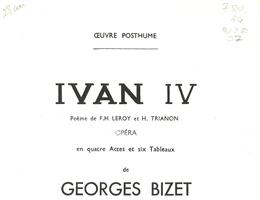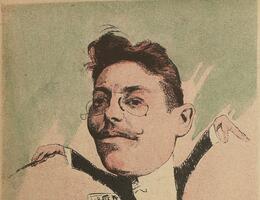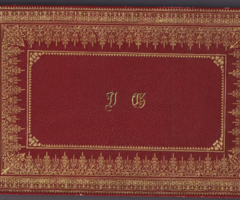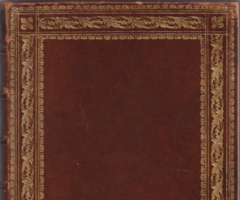![L'Assiette au beurre, 1905/08/19 [Busser]](/sites/default/files/styles/440x580/public/2023-12/ab_1905_08_19_busser_c_gallica.jpg?itok=4BvdEJtJ)
Henri BUSSER
1872 - 1973
Conductor, Composer, Organist
The organist, conductor and composer Henri Busser, who was born in Toulouse just a few weeks after the première of Verdi’s Aida and died the year the rock band AC/DC came into being, adopted throughout his long career a musical language inherited from the nineteenth century. He attended the École Niedermeyer, then the Paris Conservatoire, and he also studied composition with Gounod, to whom later he devoted a biography. Wagner inspired his dramatic works, but his orchestration and harmony were influenced by Debussy, with whom his name remains closely associated: Busser conducted ten performances of Pelléas et Mélisande in 1902, and orchestrated his Petite Suite and Printemps. Busser was professor of composition at the Paris Conservatoire from 1931 (his pupils there included Litaize, Landowski and Dutilleux) and the author of several publications: a Traité d’instrumentation (written with Ernest Guiraud), a Précis de composition, and De “Pelléas” aux “Indes galantes”, a book of memoirs (precious despite a certain lack of scientific accuracy). He also composed many religious works, and he enjoyed writing for the theatre: Anatole France provided the text for Les Noces corinthiennes, but Busser wrote most of his opera librettos himself, adapting Mérimée for Colomba (1921), Le Carrosse du Saint-Sacrement (1948)and La Vénus d’Ille (1964). Le Carrosse du Saint-Sacrement shows his sense of comedy, also cultivated in Roxelane (1948, after Favart) and Diafoirus 60 (1963, after Molière). His orchestral output includes À la villa Médicis, Minerve, Hercule au jardin des Hespérides and a Suite funambulesque, which illustrate his taste for evocative or “programme” music.
Scientific publications
Publication

